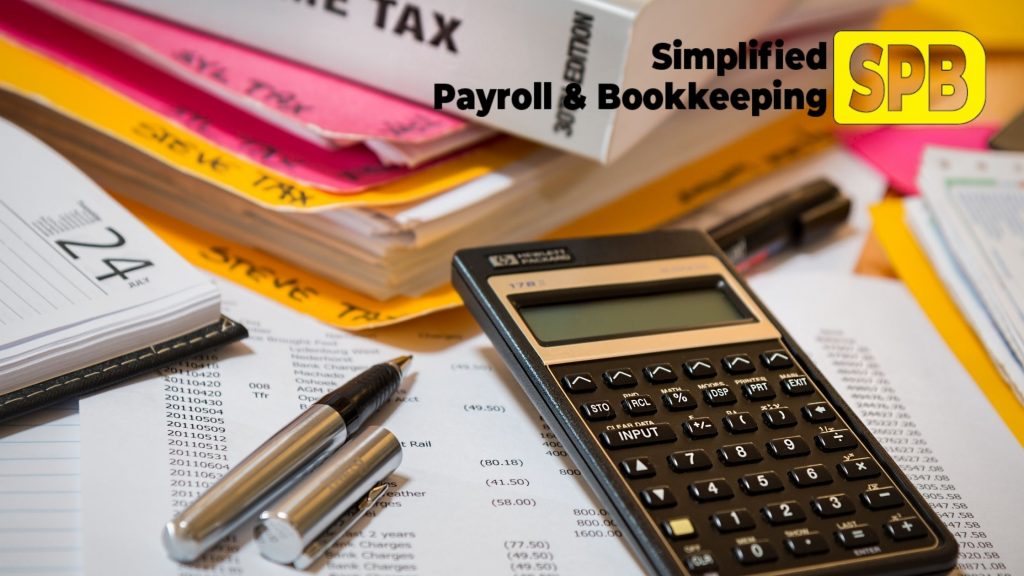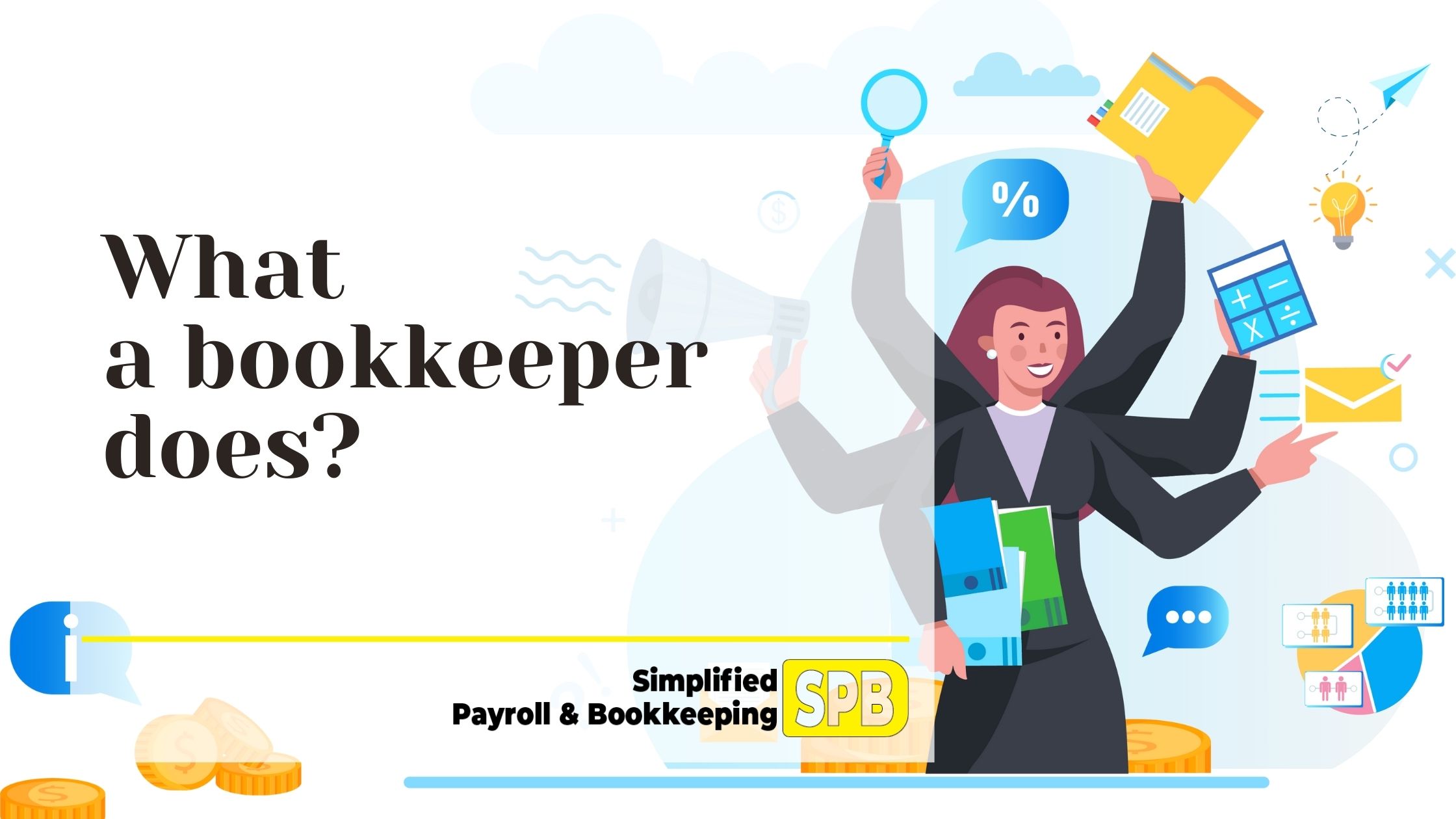So, what a bookkeeper does? Let’s find out!
What does a bookkeeper do?
A bookkeeper records the details of financial transactions. This process is known as accounting, or bookkeeping. A bookkeeper must have strong math skills to ensure that the numbers recorded are accurate and complete.
What is bookkeeping?
Bookkeeping is the recording of financial transactions, generally in an accounting system. It may refer to the tracking of revenues and expenses by a business or to an individual’s personal finances.

10 things what a bookkeeper does daily
- A bookkeeper records financial transactions from a variety of sources. This may include writing down information from a computer system or manually entering data into a record book.
- The bookkeeper must make sure that the transactions are categorized correctly in order to ensure an accurate representation of current and past balances, income, expenses and cash flow.
- A bookkeeper may be responsible for adjusting accounting records to make sure that entries are accurate and complete, or researching information about transactions if questions arise. The lack of accuracy in the books can result in potential penalties from tax authorities. This responsibility is often shared with an accountant, who specializes in tax preparation and financial advising services.
- A bookkeeper updates financial records to reflect changes in bills or purchases. For example, if an invoice is paid online the record of the transaction must be updated to show that the purchase was made and payment received. This task can sometimes occur on a daily basis if enough transactions are encountered by the bookkeeper, but may only need to happen weekly or monthly depending on the circumstances.
- A bookkeeper collects information on potential tax savings for a business, which is then passed along to an accountant who specializes in tax preparation services. For example, quarterly life insurance policies are often available at reduced rates through payroll deductions. The company accountant can prepare the documentation necessary to establish this type of insurance plan for a company.
- A bookkeeper charges a fee or commission based on the amount of work he or she completes, usually calculated as a percentage of total expenses recorded. This is known as billing by the job, and means that the amount billed to a client is directly related to the time spent working on their books.
- A bookkeeper may be responsible for reconciling bank accounts, personal records or business accounts to ensure accuracy in processing transactions. Reconciling accounts involves comparing entries in the records of a company with those of an outside agency such as a bank.
- A bookkeeper also tracks payments made to suppliers and bills sent by the business to ensure accurate payment processing. Information about money owed, expenses and bills is known as payables data, and must be kept up-to-date for a business to operate properly. If a bill is received but not recorded on the books, it may be inaccessible for future reference and long gone by the time a bookkeeper records it as paid.
- A bookkeeper calculates depreciation of assets such as machinery or equipment at the end of a fiscal year. Depreciation reduces the value of a fixed asset over time, and must be taken into account when the business prepares its financial statements.
- A bookkeeper may also be responsible for updating files to reflect current contracts with suppliers or discounts negotiated by employees. For example, if an employee negotiates a lower price on a new computer, that fact should be recorded in the files of the company.
Interested in payroll and bookkeeping services in Georgetown, TX? For more inquiries, you may contact us at 737-931-1413 or email us at info@SimplifiedPB.com.
Qualities To Look for When Hiring a Bookkeeper
1. The bookkeeper you choose should have a degree in accounting.
2. A bookkeeper needs to be able to work with numbers, so they should have good math skills. They also need strong computer skills, including an aptitude for learning new software programs quickly if necessary.
3. Look for someone who has at least five years of experience working with a variety of businesses, including small and large accounting firms.
4. A stable work history is also important – if the bookkeeper you choose has been with their last three employers for less than a year, you might want to keep looking.
5. If possible, find someone who will provide references from previous clients or employers.
6. Recommendations from other business owners or accountants can also be helpful in finding a good bookkeeper.
7. Make sure you understand the fees involved, and ask if there are any additional charges beyond the standard percentage of total income billed.
8. Discuss how often invoices will be sent out, and how long it should take for bills to be paid.
9. Determine the best system for recording expenses and accounts payable, and make sure that your bookkeeper is willing to work with you on any additional procedures you may require. By setting up a good working relationship with your bookkeeper, both parties will benefit in the long run!

Now you know what a bookkeeper does – Contact us:
Advantages of a bookkeeper
- Bookkeeping is an essential part of running a business, ensuring that transactions are properly recorded and the accounts kept up-to-date to provide accurate information for future decision-making.
- A bookkeeper performs tasks crucial for maintaining records in a way that makes them accessible when they are needed.
- Poorly kept records mean that current and future decisions may be based on inaccurate information, leading to costly mistakes.
- A bookkeeper is responsible for updating files to reflect current contracts with suppliers or discounts negotiated by employees in a way that provides a thorough record of business transactions.
- An efficient bookkeeping system in a small business can save up to 15% of operating costs by minimizing errors and preventing the need for a large number of costly information requests.
- A small business that keeps accurate records often has an easier time acquiring a loan from a bank, as well as being more attractive to potential buyers of the business.
- Good bookkeeping is also essential for filing tax returns – without it, a business can face heavy fines or penalties.
- A bookkeeper is responsible for preparing financial statements that are useful for monitoring the progress of the business, as well as essential for filing income tax returns.
- A bookkeeper also helps lower insurance costs by reducing the risk of theft due to poor record-keeping practices.
- Good organization is important in a bookkeeper’s work. That way, they can more easily locate information if it needs to be submitted for business loans or taxes later on.
Signs That You Urgently Need a Professional Bookkeeper
1. You don’t know your financial situation
2. Your sales and income figures don’t add up
3. It takes you days to prepare routine reports
4. You’re afraid that the tax office will call for an audit because of your bookkeeping
10 Ways To Make Sure Your Bookkeeper Doesn’t Steal From You
1. Make sure they sign a contract that places the responsibility for accurate records on them, including any penalties or fines issued by the tax office if an incorrect filing is blamed on the bookkeeper.
2. Invoice clients promptly – if you are slow with invoices, it may suggest to your bookkeeper that you either don’t really need the work done, or that it doesn’t matter if you’re paid.
3. Keep your financial records well-organized – if your bookkeeper can’t find what they are looking for, the time spent fixing the problem may cost more than the bill itself.
4. Make sure there are no personal connections between yourself and your bookkeeper – ideally, they should be a professional with the relevant qualifications and experience.
5. Have all invoices checked by another person or department before payment is made, to make sure that no unauthorized expenses have been billed.
6. Hold a company meeting once a month to discuss financial situations and progress, in order to keep lines of communication open and transparent.
7. Make sure you bookkeeper doesn’t have access to your bank accounts or any other key business infrastructure – for example, a separate system is needed for online payments, whereas a cheque-signing machine can be used by someone with proper authorization.
8. Be open about your business arrangements – if it looks as if you’re hiding something, your bookkeeper may start to wonder what it is.
9. Be alert to any possible infractions – for example, if you notice that someone has been charging meals and entertainment during a conference to the company account, rather than their own, there might be a problem.
10. Keep things simple by minimizing your overhead costs – you are more likely to save money on your accountant by hiring someone with basic qualifications rather than a qualified bookkeeper who’s also an MBA.
Contact us:
Reasons You Should Outsource a Bookkeeper
1. Bookkeeping isn’t your day job
2. The cost of hiring a bookkeeper is low compared to the value of their work
3. You don’t have enough time or resources to dedicate full-time to keeping good records
4. Stress, inaccuracy and cash flow issues caused by poor record-keeping are affecting your business
5. You know you need better record-keeping, but don’t know where to start
6. You’d rather focus on your business and let a professional bookkeeper do their work
7. You want to make sure that your financial information is accurate and accessible
8. Outsourcing ensures that you won’t violate any laws or regulations by keeping bad records
9. You don’t have a lot of money to spend on a bookkeeper
10. Outsourcing helps you save money by allowing you to focus on important things
So, now you know what a bookkeeper does. Check our services:
At Simplified Payroll and Bookkeeping, our service list includes;




